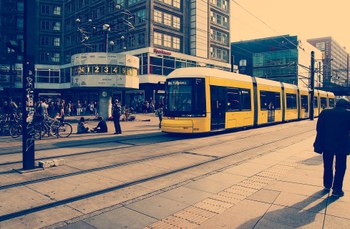Low-Carbon Mobility

Nowadays, mobility needs of urban and rural communities are more and more complex and affected by different socio-economic features, such as lifestyles, behaviours, aims, etc. These influence the quality and liveability of the urban environment and the level of segregation of peripheral areas, thus generating social and environmental conflicts.
In this framework, our research activity is focused on mobility solutions with reference to their role in orienting urban dynamics in sustainable terms. Notably specific research has been developed on:
- The role of multimodal mobility in promoting sustainable and low-carbon cities.
- Innovative strategies for the internaliation of transport external costs, by integrating the traditional approach based on the “economic" internalization of external costs (i.e. pricing measures) with a wider internalization view that implies land use and environmental planning as well
- Improving the quality of life in urban areas using infrastructure and public transport and through the enhancement of pedestrian and cycling paths as triggers for urban regeneration.